How Much Is My Land Worth?
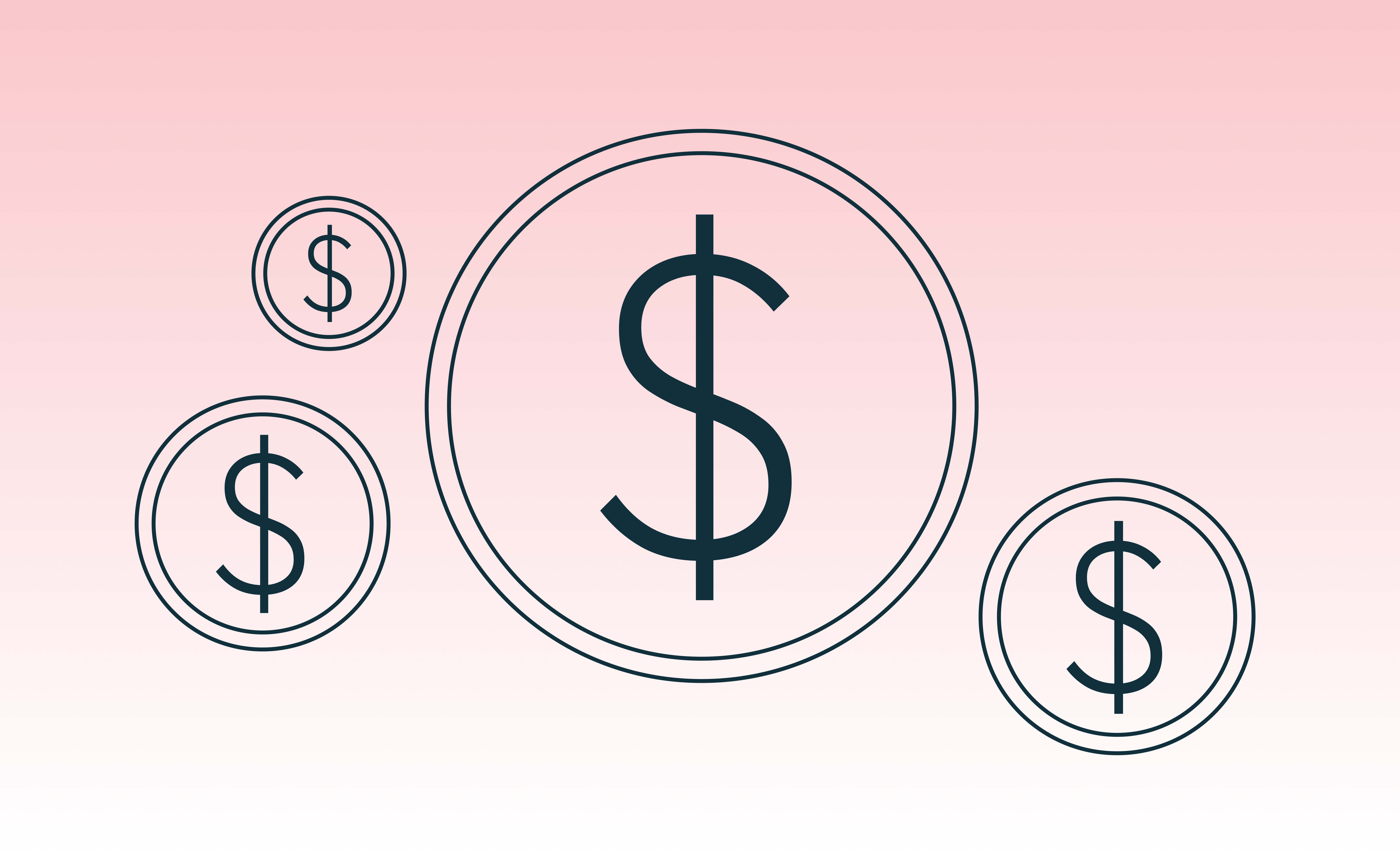
Tips on How to Determine Your Land's Worth
Buying a home is a major decision, and as you explore different pathways to homeownership, you might be encountering new concepts like leaseholds.
Land & Home Values
Buying a home is a major decision, and as you explore different pathways to homeownership, you might be encountering new concepts like leaseholds. If you're considering a leasehold property for the first time, a key question that might pop into your head is: "How much is the land under my house worth?" Understanding the value of the land versus the building itself, known as land share, is crucial, especially when you own the home but lease the land. Let's break down this important concept and what it means for you.
Simply put, land share is the portion of a property's total value that is attributed to the land it sits on, as opposed to the house or other structures on the land. It's usually expressed as a percentage. For example, if a property is worth $500,000 and the estimated value of the land is $200,000, the land share is 40% ($200,000 / $500,000 = 0.40).
Why is understanding land share important? Well, it helps you see how the value of a home is distributed. This is particularly relevant when considering leasehold properties, where you own the building but lease the land. In such cases, you're purchasing the structure but essentially "renting" the land beneath it.
You'll often find that expensive housing markets tend to have higher land share percentages. This is because in densely populated or highly desirable areas, the land is a limited and valuable resource. Think of major metropolitan areas where land scarcity drives up its price significantly compared to the cost of construction.
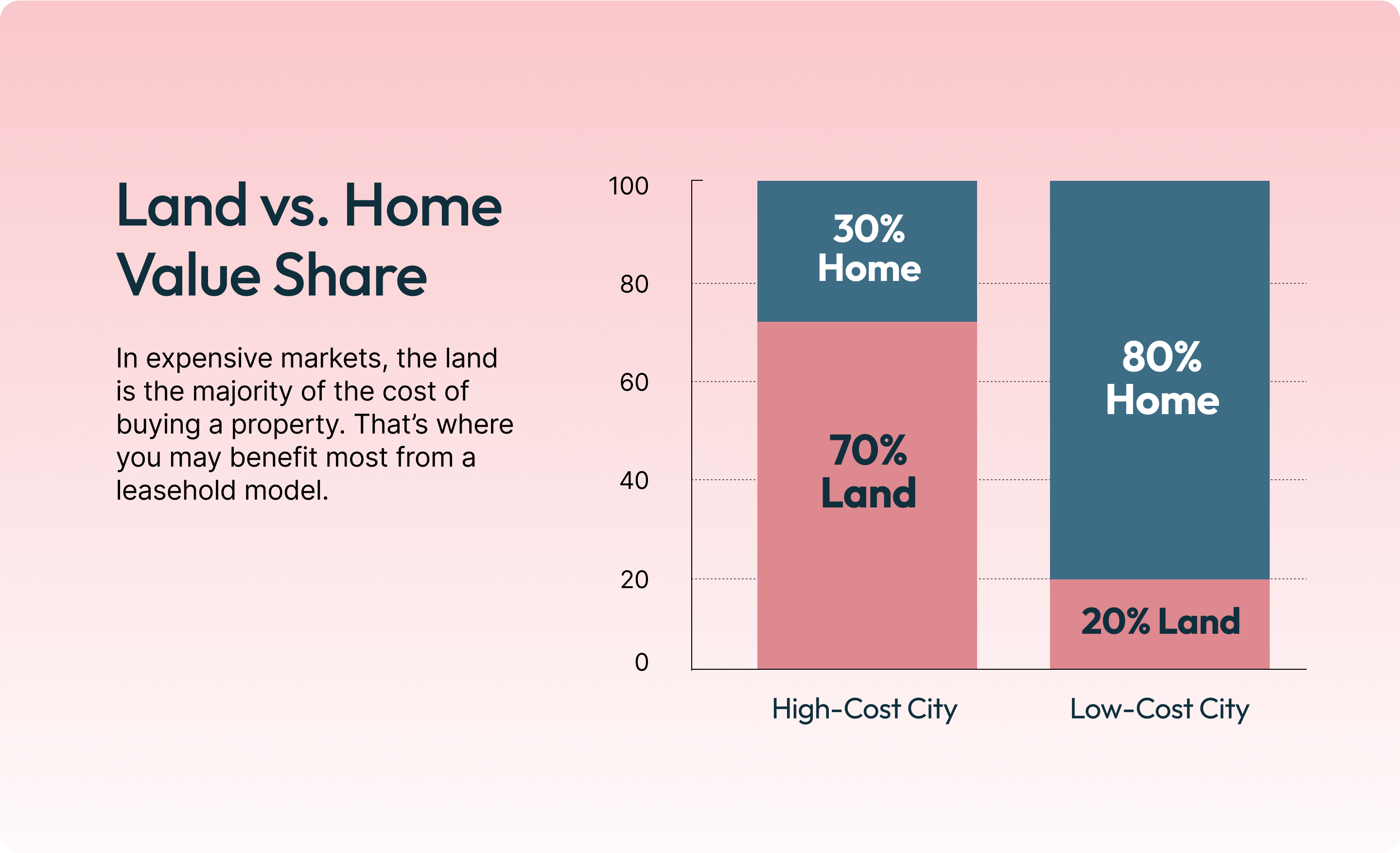
Generally, over time, land values tend to appreciate (increase in value) at a faster rate than buildings, which can depreciate (decrease in value). Historically, in traditional leaseholds, this could create an imbalance where the landowner benefited most from the increasing property value, while the leaseholder's asset (the building) might lose value. However, it's important to note that Jubilee's modern leasehold model is designed to be fairer. With Jubilee, both the homeowner and Jubilee share proportionally in the appreciation of the entire property (land + improvements), ensuring alignment and a more equitable outcome.
So, how can you figure out the land share for a particular area? While an independent real estate appraiser can provide a professional assessment of a specific property, there are also objective third-party resources available that provide land share estimates at a granular level. Two notable sources are:
- The Federal Housing Finance Agency (FHFA): The FHFA has a dataset that breaks down property value into land and structure components using millions of actual property appraisals. This data provides estimates down to the ZIP code and census tract levels for much of the country and is updated periodically.
- The American Enterprise Institute (AEI): The AEI Housing Center also provides land price and land share indicators, leveraging FHFA's research and updating it over time using home price indices. Their interactive tools show land share at the ZIP code, census tract, and county levels and are updated frequently, even monthly, reflecting current market conditions (see below for a picture of Los Angeles).
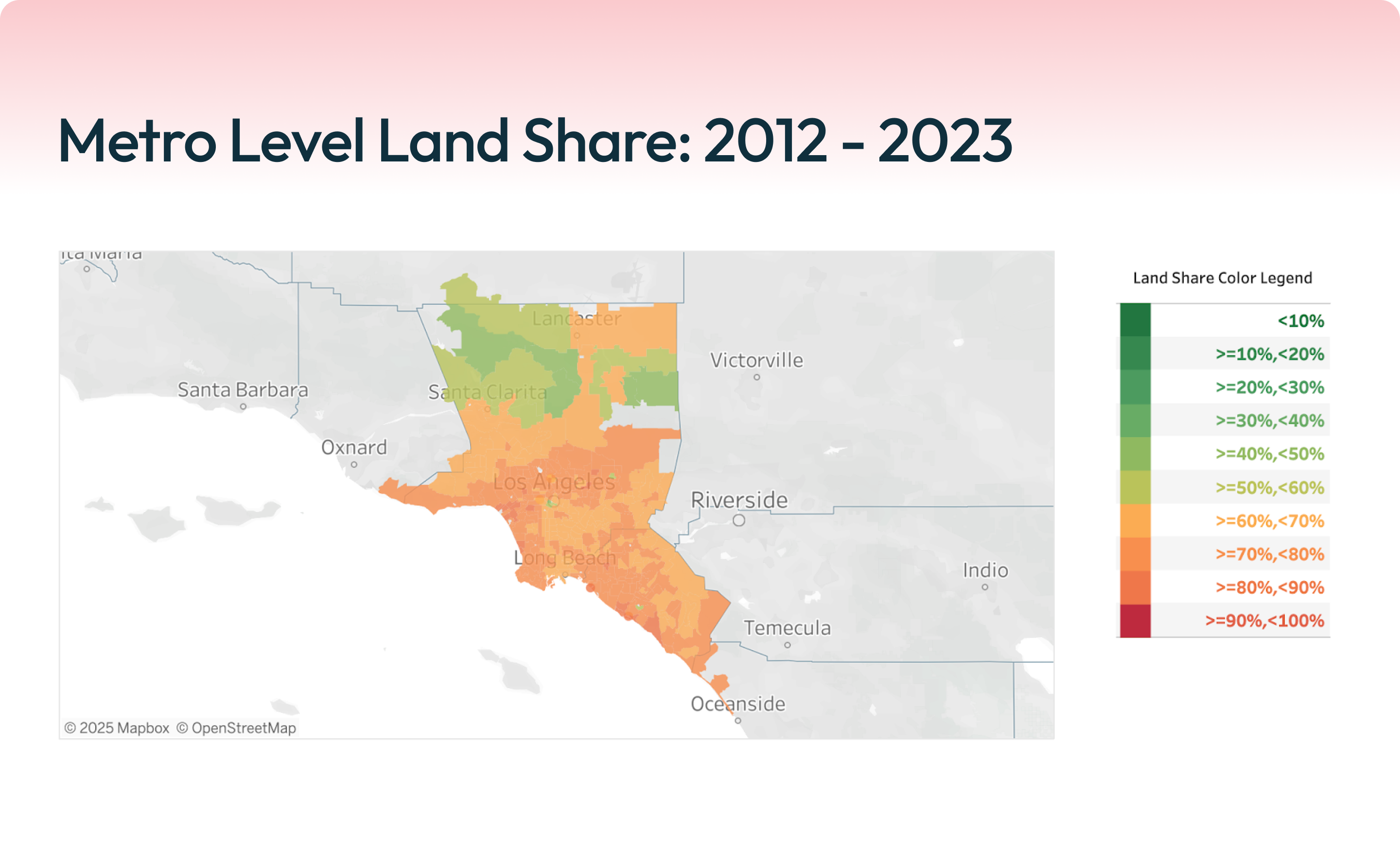
These resources rely on real appraisal data, offering a data-driven estimate of land value in different geographic areas. By exploring the data provided by the FHFA and AEI, you can gain a better understanding of how much of a property's value in a specific location is typically attributed to the land.
Ultimately, when determining whether a ground lease is fair, focus on whether you are sharing fairly in the total outcome. For example, if you pay 50% of the total property cost to buy the building, wouldn’t you expect to share in 50% of the total property’s appreciation? Or if the land building was only 40% of the property value, then it would be fair to share in 40% of the appreciation.
A fair model, like Jubilee's, aligns the interests of the homeowner and the landowner, so you both benefit from the property's overall success. This ensures that as the total value of the property increases, you, as the homeowner, also share in that growth, regardless of the individual appreciation rates of the land and the building.
What's Next?
Understanding land share is a valuable step in your homebuying journey, especially if you are considering a leasehold. By knowing how much of a property's value is in the land and exploring resources like the FHFA and AEI, you can make more informed decisions and better evaluate the fairness and potential of different homeownership options.
More resources from Jubilee
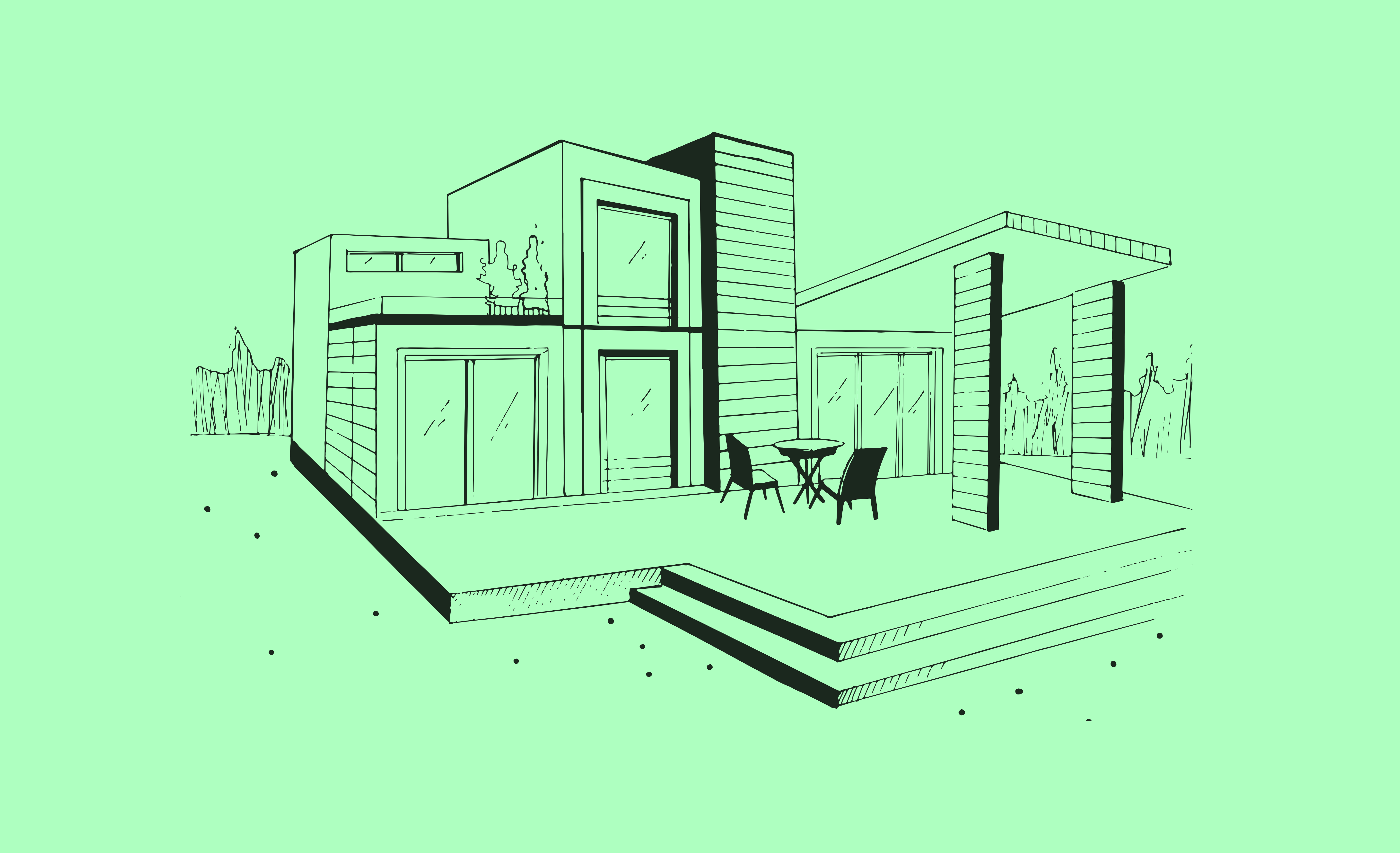

Yes, you can build equity with a ground lease.
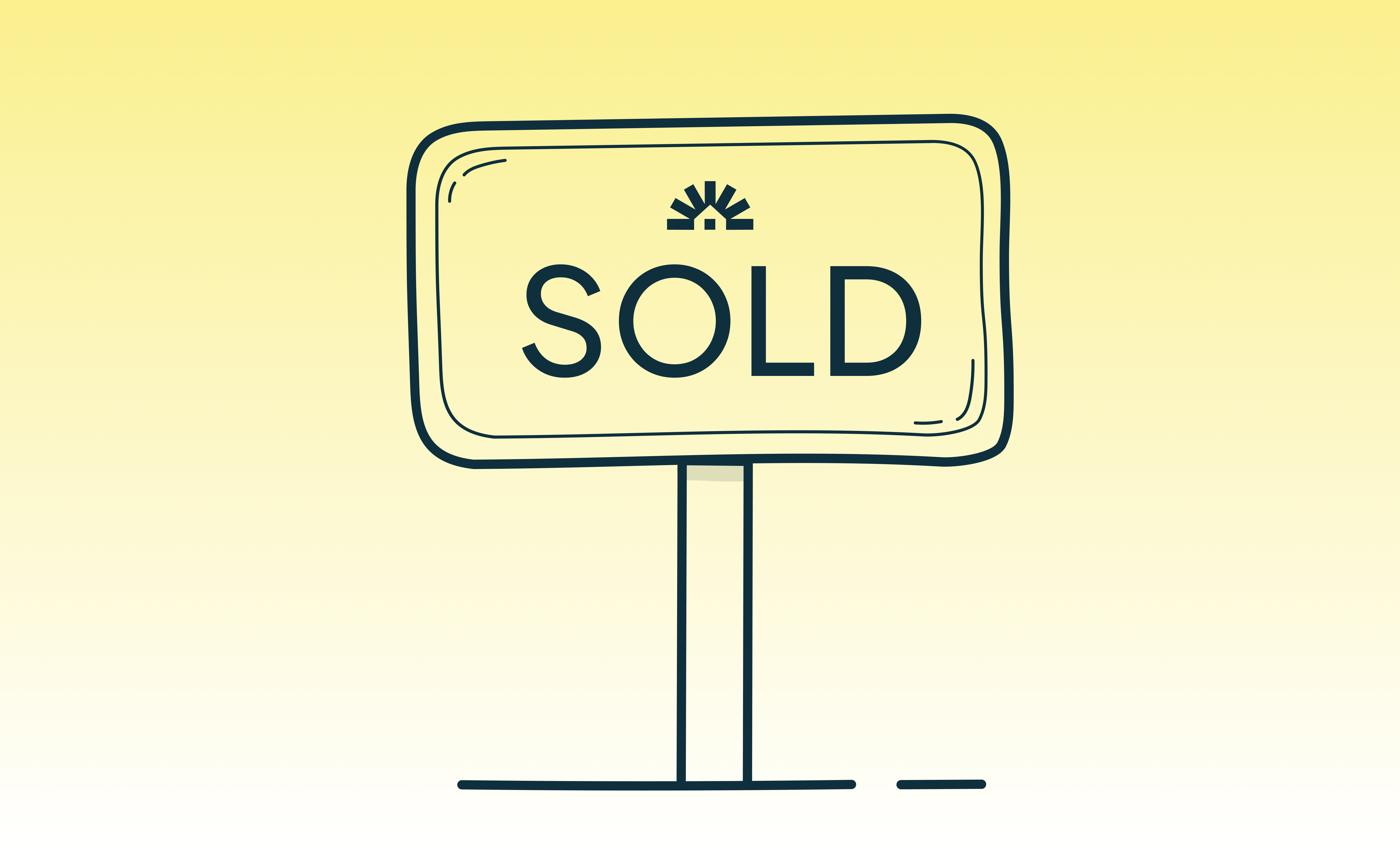

If you’re an agent working in a high-cost market, you know how tough it’s become for both sides of the transaction.
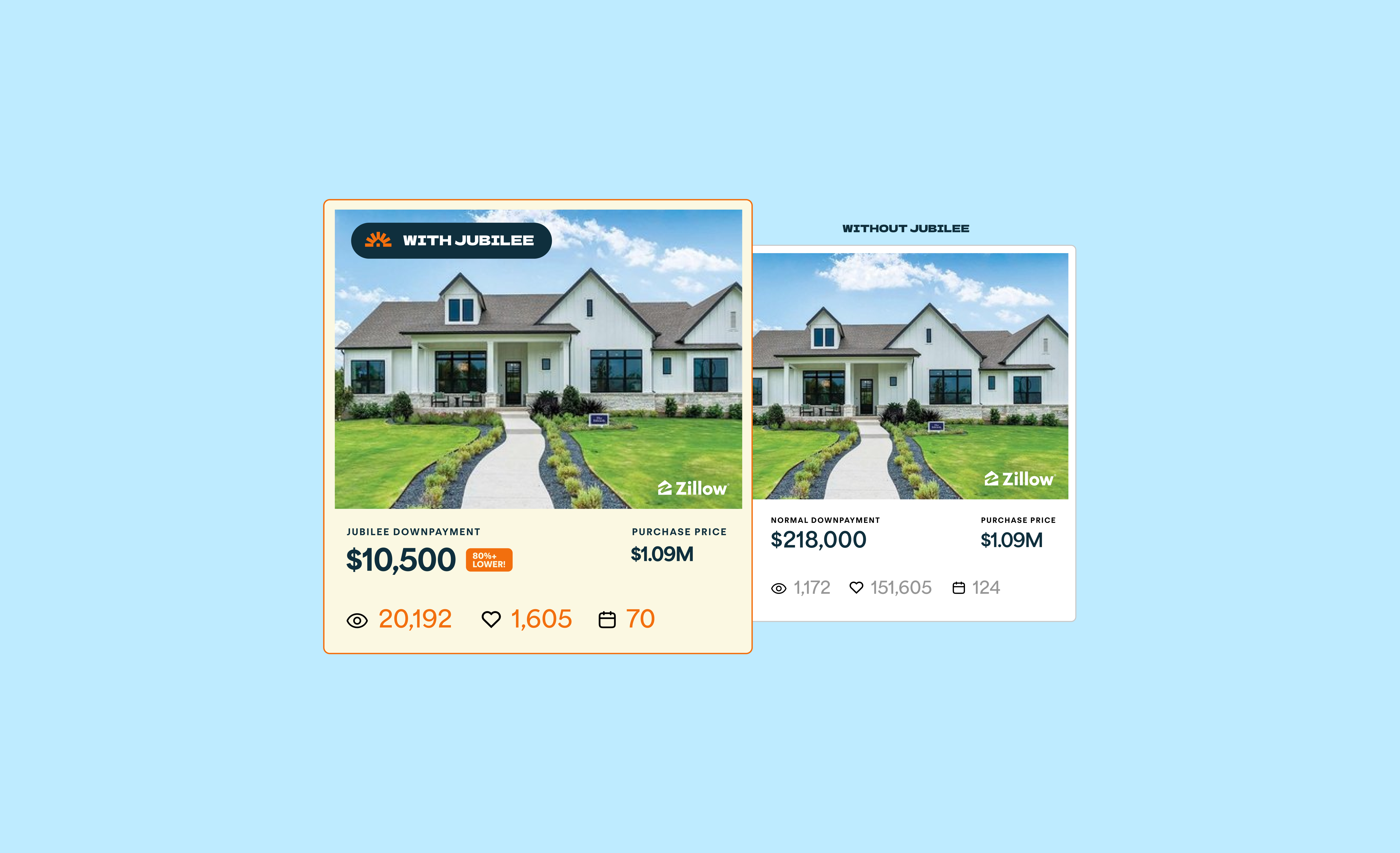

Buying a home is a major decision, and as you explore different pathways to homeownership, you might be encountering new concepts like leaseholds.
